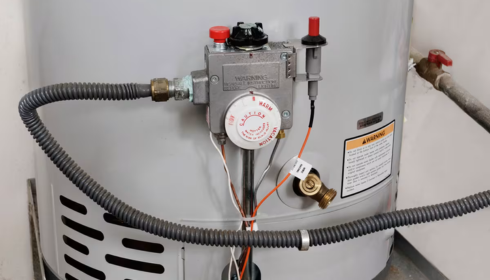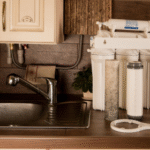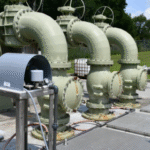When you think about home comfort, hot water sits near the top of the list. Whether it’s for your morning shower, washing dishes after dinner, or running the laundry, you only notice how vital a water heater is when something goes wrong. Then suddenly, you’re faced with big decisions: repair, replace, or upgrade. And behind each of those options lies a number — the actual cost. But here’s the thing: those numbers aren’t as straightforward as most people hope. They shift depending on installation, labor, brands, emergencies, and even the quirks of your own plumbing system.
In this piece, let’s peel back the layers of water heater expenses. Not just the receipts and service quotes, but the reality of why these costs feel like a moving target, and how you can navigate them without losing your cool.
Understanding the Basics: Why Installation Isn’t Just Plug-and-Play
Many homeowners imagine water heaters as “big plug-in kettles” — buy one, set it up, and enjoy hot water. But installing a heater isn’t that simple. First, there’s the choice between tank and tankless, gas or electric, standard or hybrid. Each has its quirks. Then comes the labor — professional plumbers don’t just drop the unit in place. They check your venting, wiring, piping, and safety codes. Sometimes, they even have to update your old connections to bring everything up to modern standards.
That’s why the water heater installation cost can surprise you. You’re not just paying for the heater itself. You’re paying for expertise, safety compliance, and sometimes hours of unexpected adjustments behind the scenes. Sure, a DIY-inclined person might be tempted to try it themselves, but when gas lines or electrical rewiring enter the picture, most folks quickly see why professional installation is worth the money.
The Big Question: Replace or Repair?
Water heaters, like cars, don’t last forever. A tank model usually gives you about 8–12 years. Tankless units stretch that to 15–20 years, but nothing is immune to time. The dilemma is real: do you keep repairing an old unit, or bite the bullet and replace it?
Here’s where math and practicality collide. If your heater is pushing a decade and repairs start stacking up, replacement often makes more financial sense. Imagine spending $400 to fix a leaky tank, only for another component to fail six months later. That’s throwing good money after bad.
On the flip side, if your unit is relatively young and a single part malfunctions, a quick repair could keep you going for years. That’s where knowing the water heater replacement cost helps — it puts repair quotes into perspective. If a new unit runs $1,500 installed, and you’re staring at a $1,200 repair bill, the choice becomes clearer.
When Emergencies Hit: The Hidden Costs of Urgency
Of course, not every decision happens in calm daylight. Sometimes your water heater gives up at the worst possible moment — maybe the night before hosting guests, or in the middle of winter when the whole family needs hot showers. In those moments, it’s not just about replacement vs. repair. It’s about urgency.
And urgency carries a price. Plumbers who come out on nights, weekends, or holidays charge more, plain and simple. Parts might not be in stock, leading to higher sourcing fees. And when water damage is involved — say, from a ruptured tank flooding your basement — the bill balloons fast. That’s why homeowners dread the phrase emergency water heater repair. It’s not just an extra line item; it’s the kind of bill that throws off a monthly budget if you weren’t prepared.
Factors That Swing the Price More Than You’d Think
So what actually influences water heater costs the most? Beyond brand names and labor rates, here are a few under-the-radar factors:
- Location of the unit: A water heater in a tight crawl space takes longer to install than one in a roomy basement corner.
- Building codes: Some cities demand earthquake straps, expansion tanks, or upgraded venting. Each “requirement” adds to the bottom line.
- Fuel source changes: Switching from electric to gas (or vice versa) means serious rewiring or piping work.
- Efficiency upgrades: Higher-efficiency units cost more upfront but save money over years of operation.
It’s rarely just about the sticker price. The domino effect of small extras is often why quotes differ so dramatically between homeowners, even within the same neighborhood.
Ways to Soften the Blow Without Cutting Corners
Here’s the good news: water heater costs aren’t set in stone. With a little planning, you can keep expenses in check:
- Shop around for quotes: Don’t settle on the first plumber’s estimate. Even a quick phone call comparison can save hundreds.
- Check for rebates: Utility companies often offer rebates for energy-efficient models. It’s worth a call to your local provider.
- Bundle services: If you’re upgrading plumbing elsewhere, ask your contractor about combining the work.
- Schedule wisely: Unless it’s a genuine emergency, avoid weekend installations when labor rates spike.
These small strategies don’t erase the cost, but they help you feel like you’re steering the ship instead of being blindsided.
Balancing Long-Term Value with Immediate Expense
The tough part of water heater decisions is balancing today’s bill with tomorrow’s savings. A high-efficiency tankless unit, for example, costs more upfront. But if you’ve got a large family running multiple showers, laundry, and dish cycles, the savings on your energy bills stack up. Over ten years, you might easily recover the difference and then some.
Conversely, if you live alone or spend months away, a modest tank model may serve you just fine without draining your wallet. The right choice depends not just on numbers but on lifestyle. And that’s where slowing down to think — even when the water runs cold — pays off.
The Emotional Side Nobody Talks About
There’s another angle to all of this that doesn’t make it into cost calculators: peace of mind. Knowing your water heater won’t spring a leak next week, or that your showers will run reliably hot through winter, carries real value. It’s the kind of intangible benefit that makes people say, “Yeah, it was expensive, but I sleep better now.”
That doesn’t mean ignoring prices or blindly replacing things. It means acknowledging that some home expenses are really about reducing stress as much as maintaining comfort. And if you’ve ever woken up to an ice-cold shower on a Monday morning, you know that stress is very real.
Wrapping It All Up: A Practical Takeaway
Water heater costs can feel like a riddle, with numbers shifting depending on the hour, the plumber, or the condition of your old unit. But when you step back, the pattern becomes clearer. Installation is about expertise, replacement is about timing, and emergencies are about urgency.
If there’s one thing to take away, it’s this: prepare before you’re forced to. Research models that fit your lifestyle, keep an eye on your current unit’s age, and set aside a small emergency fund. That way, when the day comes — and it will — you’ll face the bill with less shock and more confidence.
Because in the end, hot water isn’t a luxury. It’s part of the rhythm of daily life. And while the numbers on the invoice might sting, the comfort on the other side makes it worthwhile.



